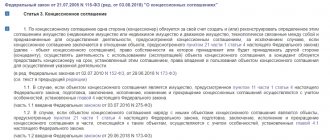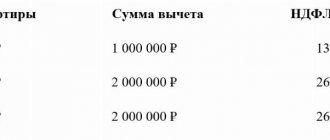For asset management, the trustee receives a remuneration, which can be determined in the form of a fixed sum of money or as a percentage of the income received. In addition, the trustee has the right to reimbursement of expenses incurred in connection with transactions in relation to assets.
With trust management, ownership rights remain with the owner of the assets, and the intermediary (trustee) manages them in his interests. At the same time, the powers of the trustee to dispose of assets are not unlimited - the law (or agreement) may provide for restrictions on the performance of certain actions.
The Civil Code of Russia interprets trust management broadly; its objects can be:
- enterprises and other property complexes;
- real estate;
- securities;
- exclusive rights;
- money intended for investment.
An example of real estate trust management. The owner has an apartment in Moscow, but he himself lives abroad. He can enter into a trust management agreement with a real estate company so that it: rents out housing, monitors the safety of the apartment, resolves all issues with residents, and transfers a monthly fee to the owner. The specific obligations of the parties are indicated in the contract. Property management will need to be registered with Rosreestr as a restriction of rights (encumbrance of property).
The most common type of trust management is the management of the client’s money and securities for transactions on the stock market. Only organizations licensed by the Central Bank to work with private investors can manage these assets; they are called management companies.
There are management companies of banks (for example, Sber Asset Management, Alfa Capital), mutual investment funds (UIFs), non-state pension funds (NPF), insurance companies), etc.
Trust management is established in two more cases:
- the need to manage inherited property, for example, shares in a business, shares, securities;
- state and municipal employees who do not want to completely part with their business or securities.
In the latter case, according to the Federal Law “On Combating Corruption,” an official who owns securities (participatory interests, shares in the authorized (share) capitals of organizations) is obliged, in order to prevent conflicts of interest, to transfer the securities (participatory interests, shares in authorized (share) capital of organizations) into trust management.
Placement and promotion on global booking platforms
Our real estate professionals will competently compile and post information about your apartment on leading tourist booking sites, monitor its rating and guest reviews so that it is always in the best positions in searches. Trust management of apartments and apartments in Moscow FLET INN is a systematic approach to the development and management of your real estate.
Trust management of real estate
Elena Sitnikova, Ph.D., lawyer at AKG Interekspertiza
Transferring real estate into trust management is a successful solution to the problem of the efficiency of its use. However, its implementation in practice can cause many difficulties for the owner. Strict compliance with the civil legislation of the Russian Federation will help to avoid them.
As a rule, real estate provides its owner with more than just income. There is a lot of hassle associated with its maintenance and use. Because of this, recently more and more owners prefer to hand over their existing real estate to trust management. As a result, they only receive profit from the use of their property - however, minus the costs of its maintenance and the remuneration of the trustee. It should be noted that trust management of real estate has its own characteristics compared to trust management of securities. This leads to many questions arising in practice.
The agreement comes into force
Let us remind you what a property trust management agreement is. One party (the management founder) transfers property to the other party (the trustee) for a certain period of time for trust management. The other party undertakes to manage this property in the interests of the founder of the management or the person indicated by him (the beneficiary) (Clause 1 of Article 1012 of the Civil Code of the Russian Federation). The agreement for trust management of real estate must be concluded in the form provided for the agreement for the sale of real estate. In this case, the transfer of real estate into trust management is subject to state registration in the same manner as the transfer of ownership of this property (Clause 2 of Article 1017 of the Civil Code of the Russian Federation).
At the same time, there is one peculiarity in the procedure for executing a contract for the sale of real estate. Its execution before the state registration of the transfer of ownership is not the basis for changing the parties’ relations with third parties (clause 2 of Article 551 of the Civil Code of the Russian Federation). Thus, the parties to the trust management agreement may stipulate in it, for example, that the agreement will come into force from the date of its signing. They can even transfer the property outright. However, for third parties - tenants or organizations providing utility services - the situation is a little different. For them, the agreement will come into force only from the date of state registration of the transfer of real estate into trust management. This provision must be taken into account. Before registering the transfer of property, all rights and obligations to third parties are borne by the owner himself, and not by the trustee.
Failure to comply with the requirements for registering the transfer of property entails the invalidity of the trust management agreement itself.
Register or not
An agreement to amend or terminate a contract, as a general rule, is concluded in the same form as the contract itself (clause 1 of Article 452 of the Civil Code of the Russian Federation). In accordance with Article 1017 of the Civil Code, a property trust management agreement must be concluded in writing. Failure to comply with this requirement entails the invalidity of the contract. It follows from this that all additional agreements to the trust management agreement must also be concluded in writing.
As follows from the provisions of the civil legislation of the Russian Federation, the real estate trust management agreement itself does not require state registration. Only the transfer of real estate to trust management needs to be registered. Accordingly, if changes and additions to the agreement do not directly relate to real estate, but only to the procedure for managing it, then they also do not require registration.
Tenants should be informed
According to Article 1012 of the Civil Code, the transfer of property into trust management does not entail the transfer of ownership of it to the trustee. At the same time, when carrying out trust management of property, the manager has the right to perform any actions in relation to it in the interests of the beneficiary (Clause 2 of Article 1012 of the Civil Code of the Russian Federation). Naturally, they must be carried out in strict accordance with the trust management agreement. It is necessary to take into account that the trustee makes transactions with property transferred to trust management on his own behalf (clause 3 of Article 1012 of the Civil Code of the Russian Federation). At the same time, he must indicate that he is acting as such a manager.
Thus, the transfer of real estate into trust management does not in any way affect the tenants: their contracts with the property owner remain in force. However, the owner and trustee are interested in bringing to the attention of tenants the fact of concluding a property management agreement. This is necessary to ensure that the tenants fulfill their obligations under the lease agreement to the trustee. They should also contact him to exercise their rights under the lease agreement. This can be done by concluding an additional agreement to the real estate lease agreement on a change of persons in the obligation. It is necessary to take into account that lease agreements for a building or structure concluded for a period of more than one year are subject to state registration (Article 651 of the Civil Code of the Russian Federation). Accordingly, it is necessary to register all additional agreements to such lease agreements.
As for the lease agreements that will be concluded by the trustee during the period of validity of the trust management agreement, no questions arise here. The normal rules of the tenancy agreement will apply. The only peculiarity will be the fact that they will be concluded not by the owner of the property himself, but by his trustee.
Where should the mark be?
As already mentioned, when making transactions with property transferred for management, the trustee must indicate that he is such. This condition is considered to be met if, when performing actions that do not require written documentation, the other party is informed about their performance by the trustee in this capacity. In written documents, the name of the trustee must be followed by the notation “D.U.”
In practice, the question often arises about which documents it should be affixed on. Only when signing contracts, additional agreements, letters, etc. - or in all cases when the organization acts as a trustee? For example, it is often indicated not only in certain documents addressed to the trustee, but also in payment orders for the payment of any amounts. Thus, a number of organizations mark “D.U.” next to the name of the manager even in orders for payment of rent. This is not entirely true. In accordance with the Regulations of the Central Bank of the Russian Federation dated October 3, 2002 No. 2-P “On non-cash payments in the Russian Federation” (clause 2.10), payment documents must contain a number of details. In particular, the name of the recipient of the funds, his account number and taxpayer identification number (TIN). Meanwhile, attention should be paid to the fact that the mark “D.U.” is not part of the organization's name. Thus, in accordance with the requirements of the said Regulations, the payment order should not indicate the mark “D.U.” In the “Purpose of payment” column of the payment order, in our opinion, a reference should be made to the document in accordance with which the payment is made.
Thus, the use of the mark “D.U.” should not conflict with regulations establishing the procedure for processing documents in a particular area.
How not to offend the manager
When accepting real estate for trust management, many trustees pose the following question to the owner. They ask that part of the premises in the transferred building be allocated for their office to carry out functions under the trust management agreement. Here it is necessary to take into account that the manager cannot be a beneficiary under a property trust management agreement (clause 3 of Article 1015 of the Civil Code of the Russian Federation). In this regard, it is very important to formalize such relationships correctly. Several ways to solve this problem can be proposed. The simplest is to exclude from the property transferred to trust management the premises that the manager intends to use as an office. Instead, they should be leased to him under a separate agreement. For example, a building can be transferred to trust management with the exception of rooms No. 1-15 on its first floor.
According to Article 1023 of the Civil Code, the trustee has the right to remuneration provided for in the trust management agreement. He also needs to reimburse reasonable expenses incurred during the trust management of the property. This should be done at the expense of income from the use of this property. In this regard, the trust management agreement can provide for the following. The right to use premises in a building transferred to trust management can be considered as one of the components of such remuneration. It is also possible to establish in the agreement that the right to use part of the premises in a building transferred to trust management is compensation for the manager’s expenses. In this case, such part of the premises must be taken into account by the trustee separately from the property transferred to him for trust management.
Advice: don’t rush to hand over
Vladimir Meshcheryakov, head of the team of authors of the book “Annual Report 2004”, head of the expert board of the magazine “Practical Accounting”I will draw the attention of readers to one controversial issue related to the transfer of real estate to trust management. It is directly related to tax minimization.
It is no secret that the parent company often needs to transfer property (including real estate) to its subsidiary. In this case, as a rule, it is more preferable for the owner of the group to transfer it free of charge. This method allows you to avoid paying income tax. The rule indicating this is contained in subparagraph 11 of paragraph 1 of Article 251 of the Tax Code.
However, the combination of gratuitous transfer of real estate with its subsequent transfer to trust management poses a serious problem. The same sub-clause of the Tax Code contains the following words: property received is not recognized as income if within a year from the date of its receipt it is not transferred to third parties. The question arises: what is meant here by the word “transfer”? The answer to this question can be found in the letter of the Ministry of Finance of Russia dated October 14, 2004 No. 03-03-01-04/1/75. It clearly states that this concept also includes the transfer of property into trust management.
The conclusion from this is simple. If the property received by a subsidiary was transferred to trust management within one year, then you will still have to pay income tax. Therefore, if a group of companies is seriously interested in minimizing taxation, I advise you not to rush into transferring such property into trust management. After transferring it free of charge, you must wait a period of at least one year.
HAVE TIME BEFORE NG!
The most visited Clerk course on management accounting is already taken by more than 100 of your colleagues. Hurry up to sign up for the course at the old 2021 price. Then it’s more expensive. Pay now, study in 2022 in a convenient stream.
- Duration 120 hours in 1 month
- Your ID in the Rosobrnadzor register (FIS FRDO)
- We issue a certificate of advanced training
- The course complies with the professional standard “Accountant”
View full program
Daily price optimization
In our work, we use price optimization technology based on Big Data, which allows us to daily adjust the rental price of your apartment taking into account demand, supply, seasonality and other events affecting the rental real estate market. Our goal is to maximize your income!





